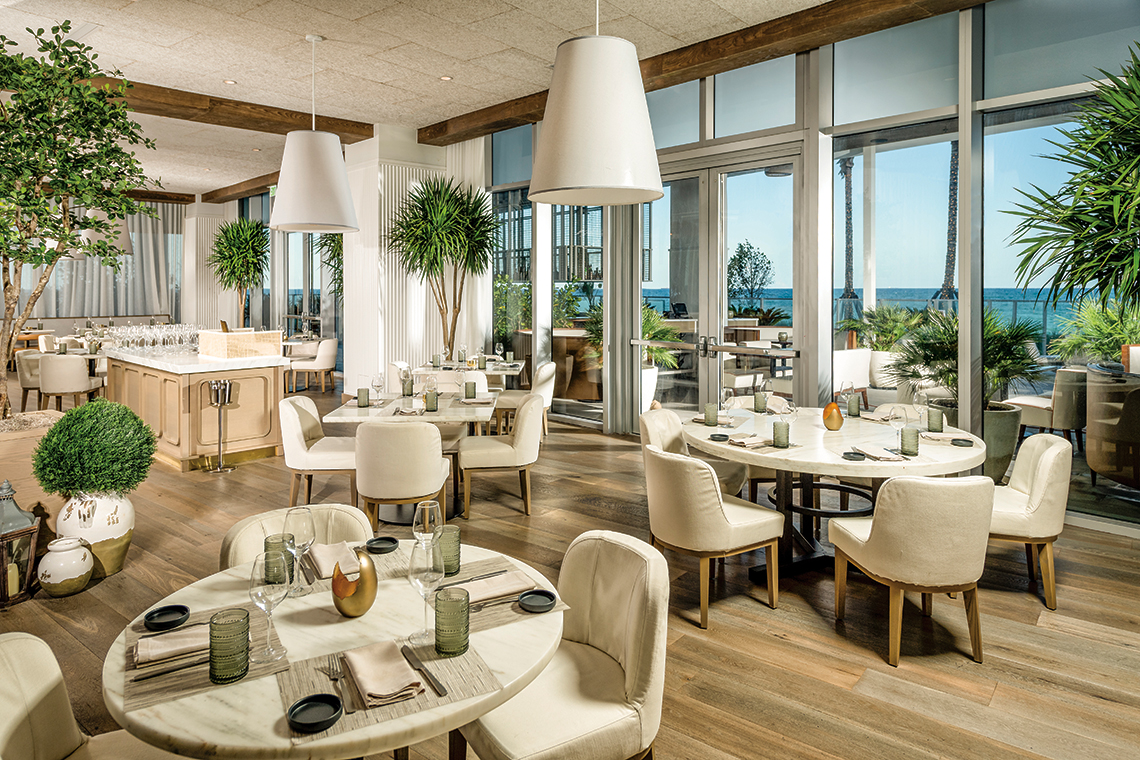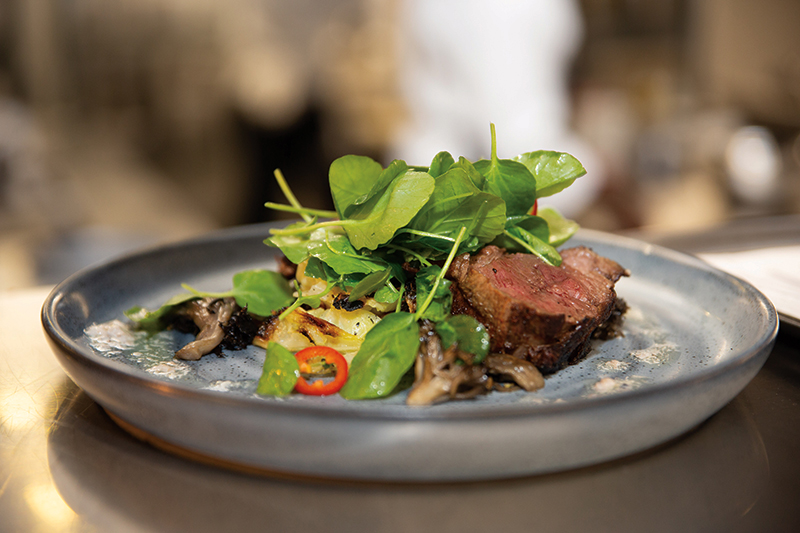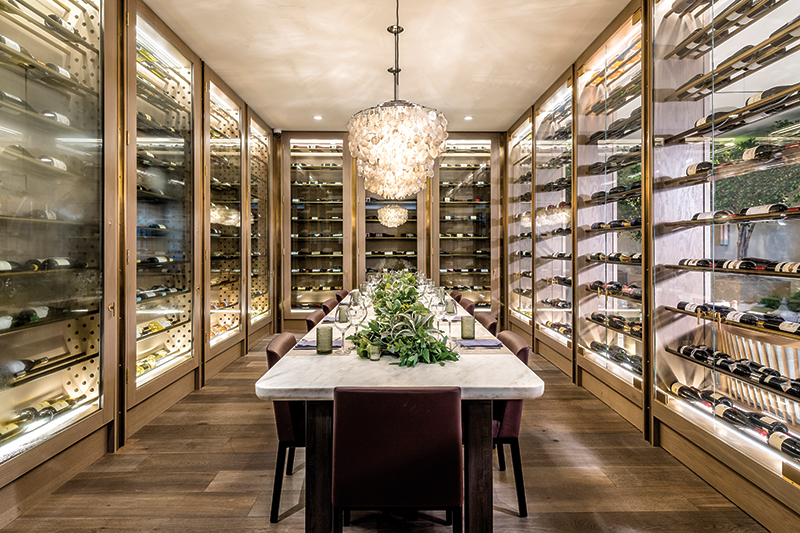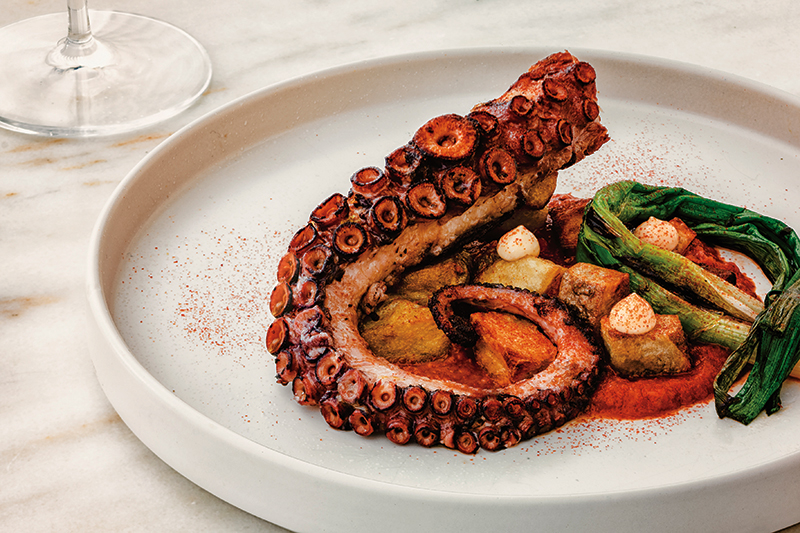
Chef Edgar Beas is a West Coast guy. Before moving to Fort Lauderdale, he worked in Michelin-starred kitchens in Los Angeles and the Bay Area, as well as one inland jaunt to Santa Fe. He grew up in San Diego and Tijuana.
But if his elite restaurant experience serves him well as the head chef at Dune, the new restaurant at oceanfront Auberge Beach Residences Fort Lauderdale, so does the part where he grew up going to some of the world’s best beaches.
For example, one piece of equipment that gets used a lot in preparation is the charcoal oven. Beas loves that charcoal smoke, that aroma. You finish an octopus in there, maybe some potatoes and it’s like you’ve walked out the kitchen doors and onto the sand.
“Obviously you can’t cook on the beach (at Auberge),” he says. “I grew up in Baja California; cooking on the beach is second nature.”
At Dune, Beas’ menu walks that line. This is high-quality fare with an emphasis on seafood, but at the same time it’s not overly complicated haute cuisine. Welcome to the beach barbecue that just happens to have some highly skilled folks manning the grill.
“We’re on the beach; nobody really has the location like we do,” Beas says. “We embrace it. It’s a simple approach; it’s not too fussy. Very lightly seasoned (and) fresh.
Beas had never lived east of the Rockies before taking this job. But when the offer came, it wasn’t a hard decision. “With Auberge, it’s a very highly regarded company. For me it made sense to jump,” he says.
“There’s a different opportunity I had here to interpret my food and my cuisine. It’s building a concept. Auberge is seen as a next-generation beach house. It’s fun – you try to create some unique concepts to the food.
“And the city, Fort Lauderdale, I really enjoyed it. For me, it reminds me of San Diego. It’s not Miami; I couldn’t do Miami. It’s more mellow, laid-back, people like food. It’s a different vibe.”
When he’s not in his own kitchen, Beas is a culinary explorer who likes to check out interesting locals-only places wherever he goes. If he wants to find, say, an interesting Haitian restaurant, he’ll look for a place where he’s going to be the only non-Haitian person there.
“If it’s packed, you know it’s good,” he says. “Wait in line, no reservations. It does give me a lot of appreciation of that cuisine, that kind of culture.”
He’s loving Fort Lauderdale’s diversity. By comparison, he says that while California cuisine benefits from a strong Mexican influence, it doesn’t have as many different influences as South Florida does. Here he’s learning more about various Latin cuisines – Venezuelan, Brazilian and others. And that’s before he even gets into Haitian and other Caribbean cuisines.
“For a chef,” he says, “it’s a dream to be able to experience all these cuisines.”
The Dish: Octopus a la Plancha
(sofrito, patatas bravas, pimenton aioli, green onion)
Ingredients
- 1 octopus, 2–4 lbs.
- 3 roma tomatoes
- 1 fennel bulb
- 1 yellow onion
- ½ cup paprika
- 3 large Yukon gold potatoes
- 1 cup mayonnaise
- 1 bunch green onion
Method
- Saute tomatoes, fennel and onion with paprika. Once soft, puree and season with salt and vinegar.
- Cook octopus in boiling salted water using the tempering method. Once octopus is cooked, chill and cut tentacles. Char with olive oil in a cast-iron pan with green onions.
- Dice potatoes and roast in an oven at 350 degrees until tender. Once they are cool, saute in a pan with plenty of oil until crispy.
- Mix mayo with paprika and season with salt.














